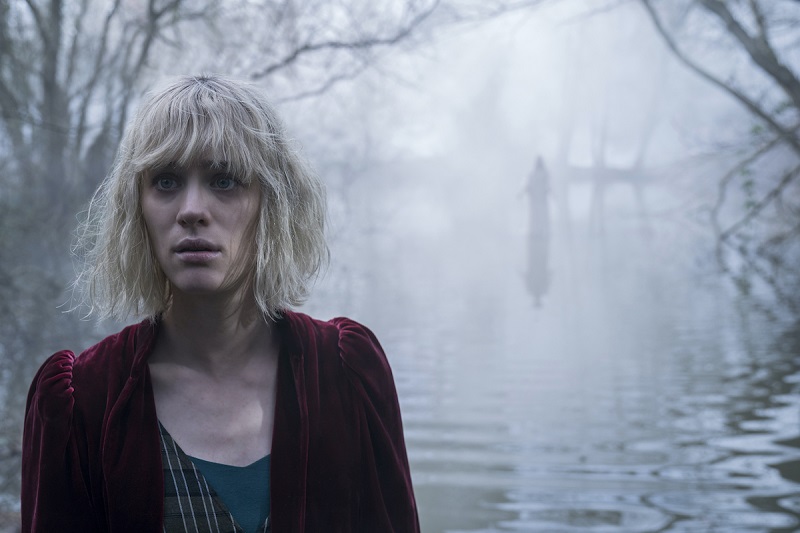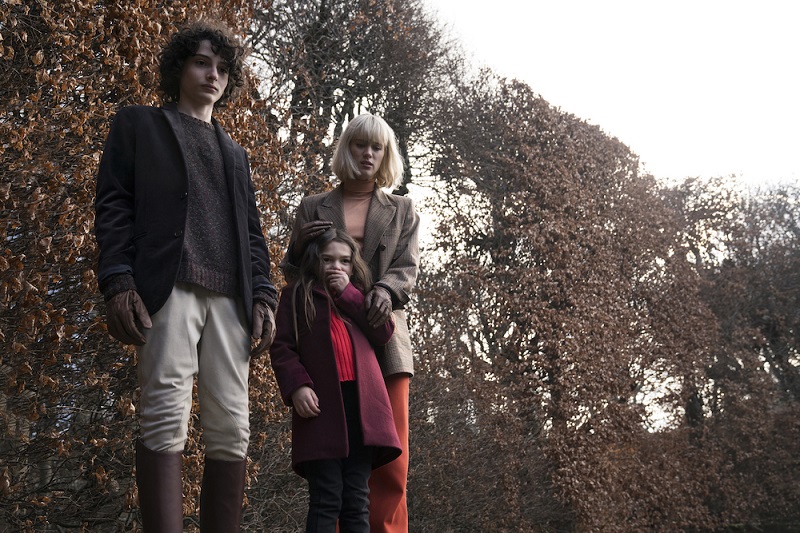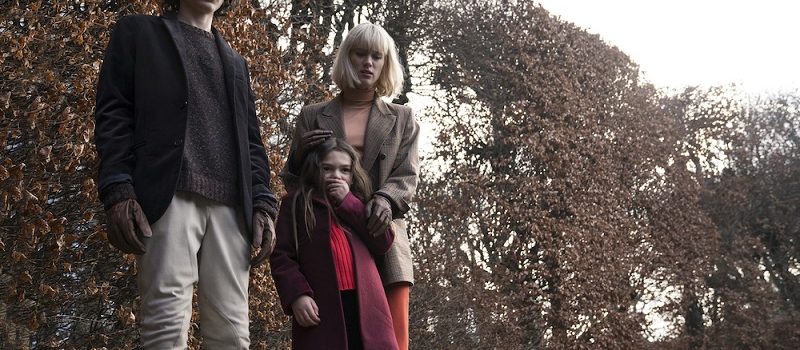DreamWorks Pictures’ The Turning takes Henry James’ 100-year old haunted-house novella, “The Turn of the Screw,” and offers a unique, modern spin on the story. Directed by visualist Floria Sigismondi, whose past filmography includes Hulu’s The Handmaids Tale, The Turning stars Stranger Things sensation, Finn Wolfhard and The Florida Project’s own Brooklyn Prince as our two orphaned children.

The film centers around protagonist, Kate Mandell (Mackenzie Davis), who accepts a nanny positon of two recently orphaned children in a rundown New England manor. But once the well-intentioned nanny arrives to the manor she starts to suspect that these children may be harboring some dark secrets.
Brooklyn Prince shines as the 7-year-old charismatic sister to 15-year-old Miles’ (Wolfhard) somewhat diabolical character. Wolfhard finally gets a chance to showcase a broad range of verisimilitude as he seemingly tries to seduce the nanny whilst almost taunting and keeping up with the innocent orphan act. And he nails it. In fact, both Prince and Wolfhard shine in their roles.
The supporting actors also bring value. Hamlet’s Barbra Marten plays somewhat creepy groundskeeper, Mrs. Grose, who has been with the estate for quite some time. When Kate starts to suspect that Mrs. Grose knows the secrets she suspects the children of hiding, Marten quickly becomes someone to watch out for. Is she responsible or is she complicit?
What’s more, Kate’s mother (Joely Richardson), also plays an instrumental but small role in the narrative, as she suffers from delusions and has been under the care of a mental institution for several years. This causes viewers to question the sanity of our protagonist. Is this all one big delusion?
One can tell that Sigismondi wanted to put a modern-day, female-centric, metaphoric “woke” twist in this version. Even though Kate voices her concerns about the children, she’s not taken seriously and is deemed crazy by Mrs. Grose, who possibly knows of the dark secrets but is complicit in keeping them hidden in order to keep up the status quo around the home.
Keep in mind, the first film adaption of James’ story was back in 1961, when Deborah Kerr starred in The Innocents. That was decades before a “woke” society, so there was a lot of opportunity to tell this story today with some modern day metaphors, which The Handmaid’s Tale director took full advantage of. As a visualist, the gothic imagery is symbolic of traditional male-dominated mentality that has led to a #MeToo movement in recent years. One where women take back the power from the men who have tried to use power to control them.
Mrs. Grose represents the women who cope by keeping the secrets, whereas Kate represents women who become whistle-blowers and try to create positive change for the next generation of women by taking a stand.
While the acting, storyline, and direction are all top-notch, it’s the film’s abrupt ending that will likely not sit well with audiences.

It seems that writers of The Conjuring, Chad Hayes and Carey W. Hayes wanted to try and tackle a Robert Eggers’ approach to storytelling. One where the audience is constantly second guessing themselves on whether the estate is in fact haunted or is the protagonist just insane?
Alas, given the slew of talent they had with experience in the horror genre involved in this project, it seems all these great minds could just not agree on a suitable ending, which is a shame.
Grade: C-

